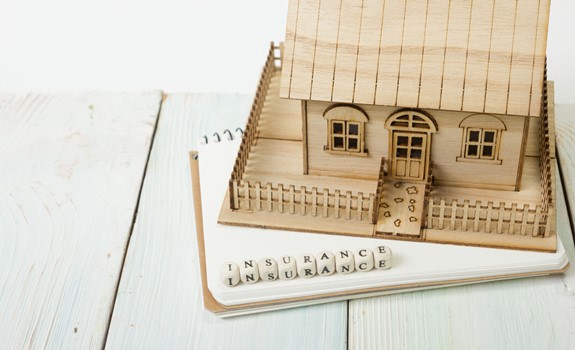When you plan on doing a home renovation, one of the first steps you’d undertake is check the contractor’s qualifications, learn about the quality of their work, and ask whether they offer insurance. What many don’t realize is that their own homeowners’ insurance is affected by all sorts of renovations performed. Your home renovation can impact your homeowner’s insurance in a number of ways. Here’s what you should know about insurance when you renovate your home.

The Insurer’s Need to Know
Your contractor should be licensed, bonded, and insured. However, you should talk to your homeowner’s insurance provider when you’re hiring contractors. For example, you may want to have liability insurance in case one of the contractors is injured on your property and decides to sue you.
Your homeowner’s insurance has some liability coverage included, but home renovations expose everyone to new hazards like nails and splinters. The construction site brings dangers; someone could fall because a door was left open and the staircase was ripped out. Losses could also occur because the power was turned off. And none of this is covered by the builder’s risk insurance, though their policy may cover thefts from your home, the construction site, while work is being done.
On the flipside, you may need the builder’s risk insurance yourself. You can secure a temporary policy during major renovations. Note that this doesn’t eliminate the need to verify whether the builder is properly insured before they start working on your home.
Your homeowner’s insurance policy itself may be affected by the renovation works performed. For example, a project that increases the value of the home affects the replacement value of the home. This includes finishing the basement, adding a bathroom, installing a deck, and remodelling the kitchen.
How the Renovations Could Impact Your Premiums
Renovations that increase the number of people passing through a property can raise your rates. Adding elements that add to the risk of a claim on the property, such as a fireplace, a trampoline or a pool will increase your premiums, as well. That’s why it’s important that you tell your home insurance provider in detail about your renovation project instead of assuming nothing changes.
Conversely, the home renovations may lower your premiums. For example, replacing the aging roof, installing an alarm system and water sensors, updating dangerous electrical systems and installing sturdier doors could result in lower insurance premiums. Ask your insurance provider whether such details could lower your homeowner’s insurance premiums and to what extent.
When Your Homeowner’s Insurance May Not Cover You at All
Depending on your policy, your homeowner’s insurance may not cover your home while it is being renovated. For example, it may not offer insurance coverage over your home if you move out for a month or more while renovation works are being done. You can ask the insurer for a vacancy permit. This has a modest cost, but it provides coverage if there is a claim while you’re camped out in a hotel. Your homeowner’s insurance may also change if you remain at home while significant renovation work is being performed. If there are exposed wiring and gaps in the walls, the insurer may consider your home as ‘a building under construction’. In this case they won’t cover you for water damage when it rains while the roof is being replaced.
Conclusion
No matter what type of renovation you’re planning to have done, it will surely affect the terms and conditions of your homeowner’s insurance policy both, during the renovation works and after these have been completed. Work with your insurer to have appropriate coverage in place throughout this process.






